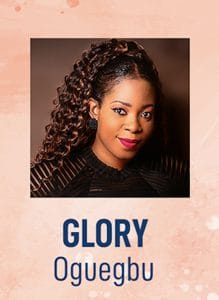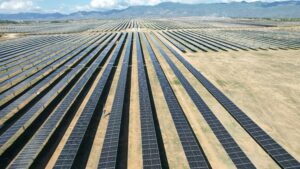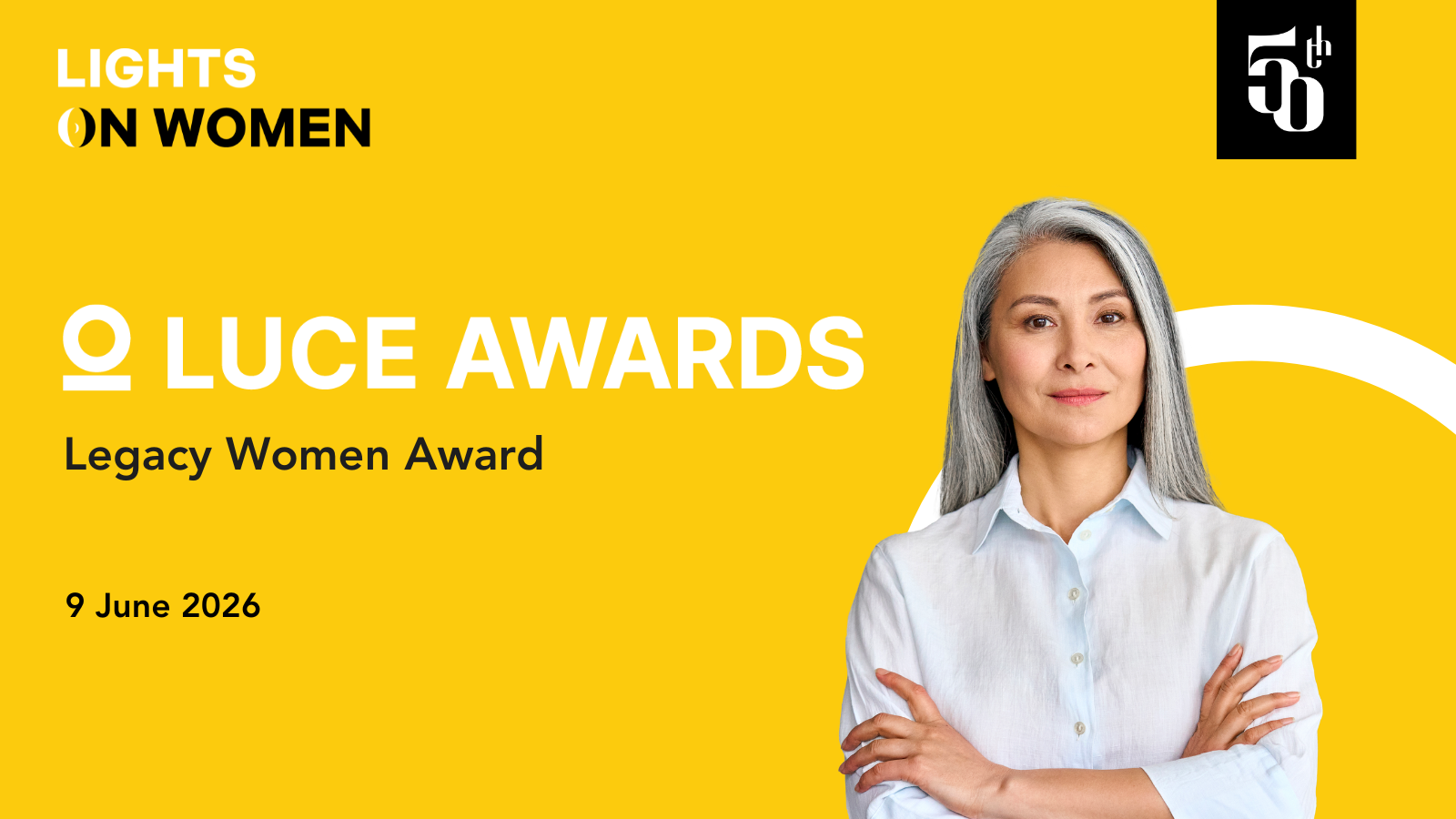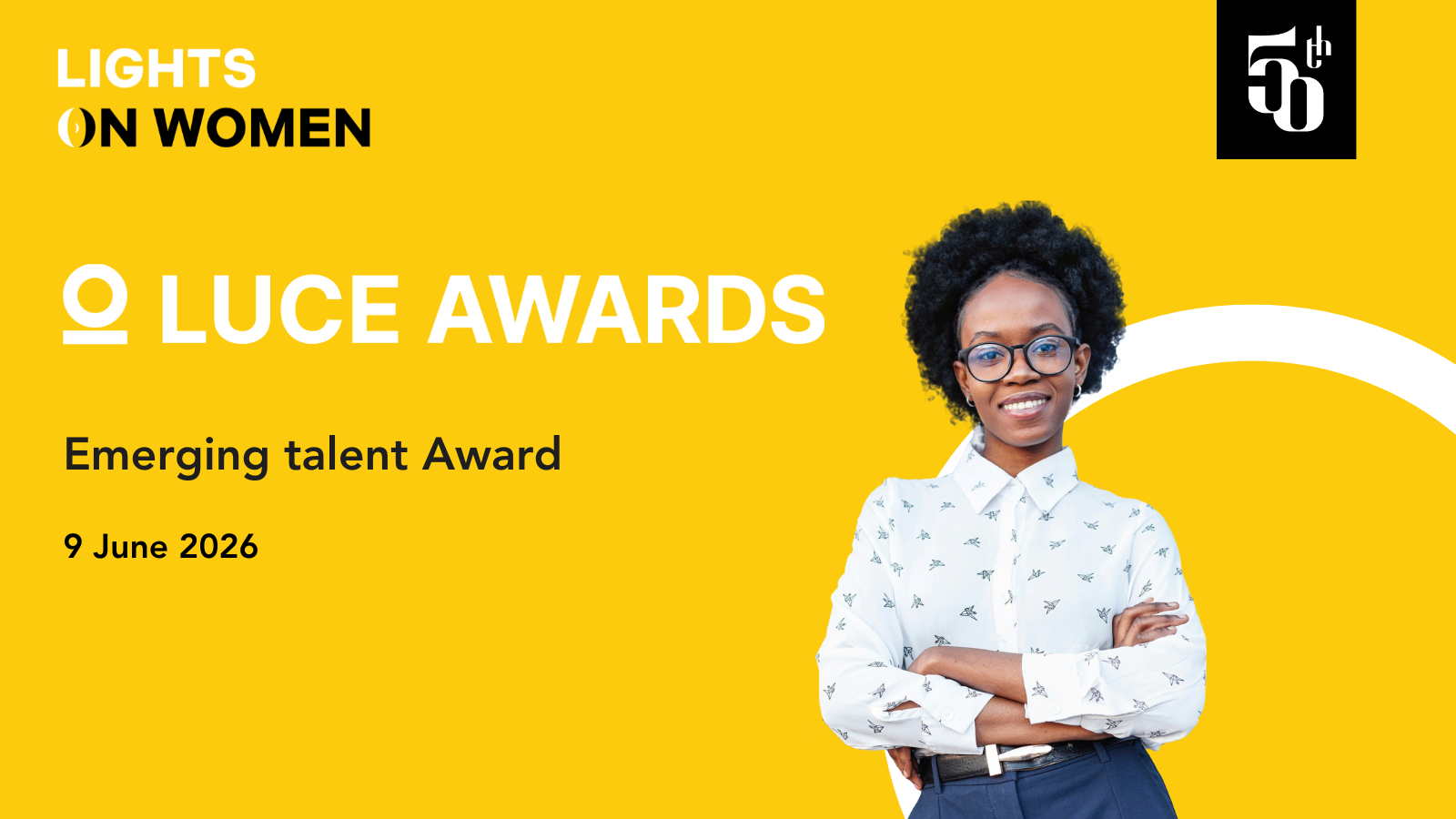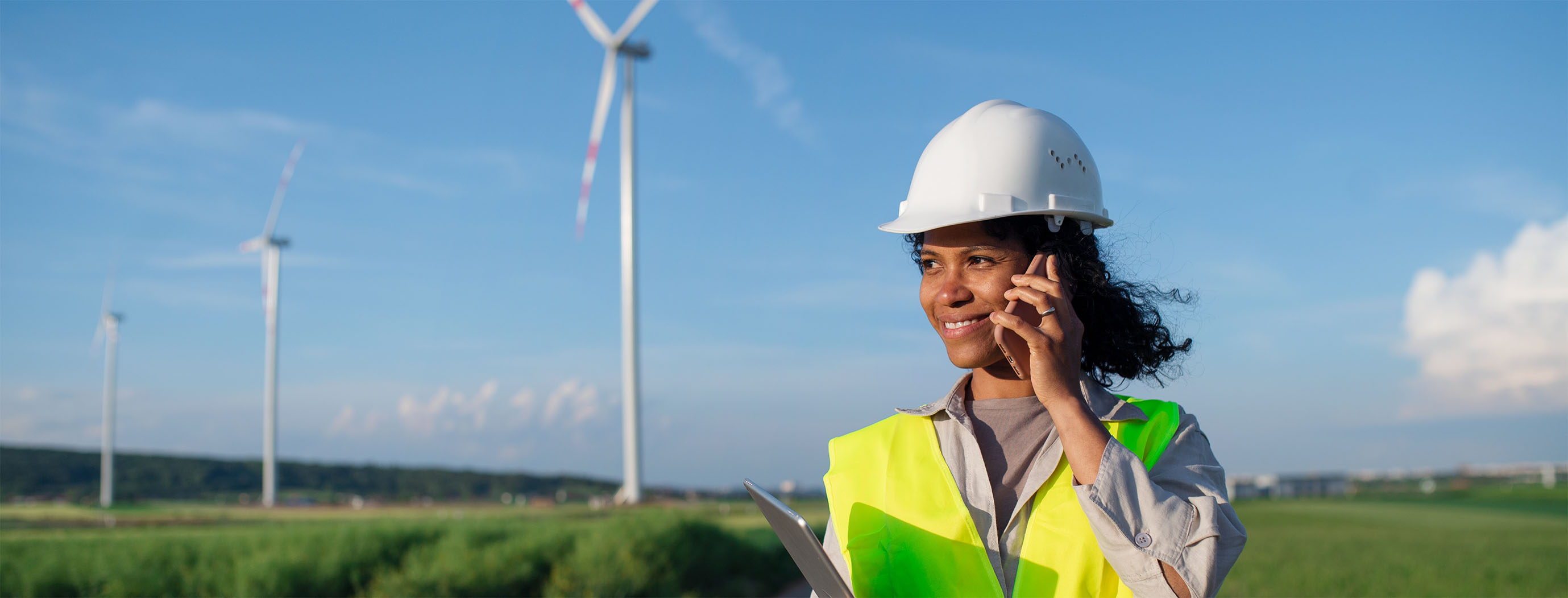2nd Lights on Women Scholarship — Meet the recipients!
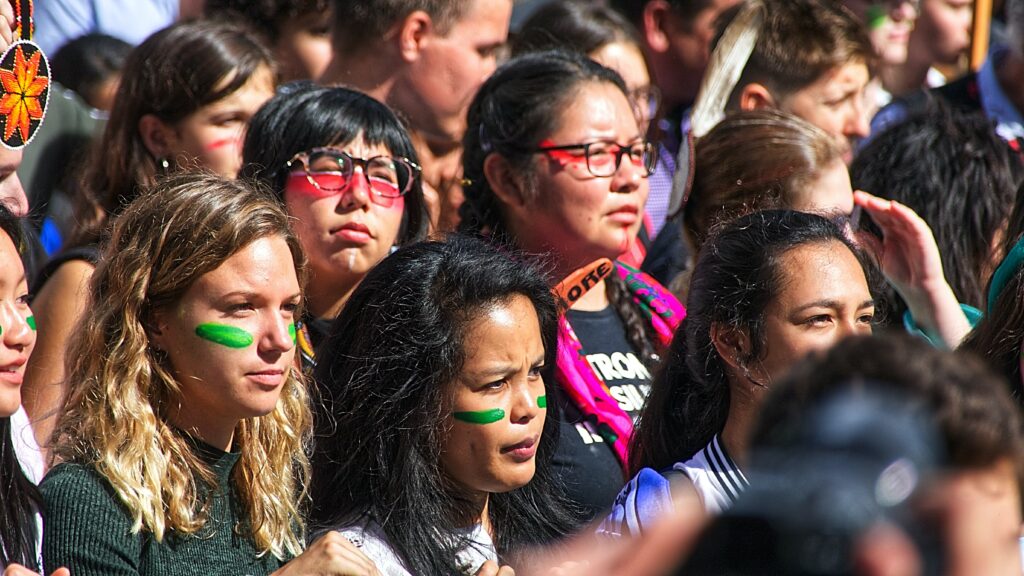
Meet the recipients of the 2nd Lights on Women scholarship!
A diverse talent pool is a key driver of innovative and inclusive solutions to advance the energy transition. To foster diversity in the energy, climate and sustainability fields, the FSR Lights on Women initiative offers four annual scholarships to motivated early to mid-career women worldwide to support their professional advancement with new or strengthened capabilities.
This year, the Selection Committee was sincerely impressed by the outstanding quality of the 150 excellent applications from 64 countries around the world! After careful consideration, we are now happy to announce the recipients of the 2nd Lights on Women Scholarship.
About the scholarship
Recipients will benefit from free access to one FSR online course, tackling a wide variety of energy regulation and policy topics to gain the technical knowledge needed to take advantage of employment and leadership opportunities.
The flexibility provided by FSR’s online courses will allow selected candidates to follow the lessons at their own pace, so to balance learning with other professional and personal commitments. All courses adopt interactive tools, group projects and live activities to enhance the learning experience and facilitate collaboration and networking with global participants and a world-renowned faculty.
Sign up for our mailing list to learn about upcoming opportunities like this one!
Meet the recipients:
Sohna Aminatta Ngum
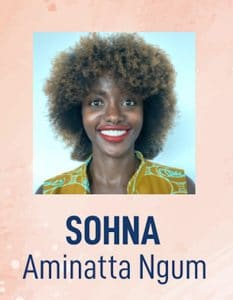
“Africa continues to face the negative effects of the climate challenge, and it is important to ensure that gender equality is addressed when designing climate change regulation and policy. The 2nd Lights on Women scholarship is a great opportunity to further develop my knowledge base around climate change policies and instruments, and strengthen my leadership skills to support my career path working towards achieving Africa’s inclusive and sustainable development.”
Sohna Aminatta Ngum is an Independent Consultant of Gambian-Zimbabwean origin specialising in the gender-energy-climate change-disaster risk management nexus.
Sohna’s formative years were spent living in economically, socially and culturally diverse countries including Tanzania, Scotland, Belgium, the Netherlands, The Gambia, and Saudi Arabia. Such an experience exposed her to differing approaches and levels of gender equality – and interlinkages with gender equality and a country’s socio-economic growth. This inspired her to focus on highlighting and addressing gender gaps in Africa, and by consequence globally.
Sohna’s career has been spent ensuring gender-responsive energy, disaster risk management, infrastructure and climate change programs funded by international organisations including the World Bank, African Development Bank (AfDB), Climate Investment Funds (CIF), and Green Climate Fund (GCF). Her work focused on building partnerships; designing and mobilising resources for programmes; preparing knowledge products and policy actions for gender equality; and building the capacity of stakeholders to support inclusive and green actions in Africa.
During her tenure at the AfDB, Sohna designed the Inclusive Climate Change Adaptation for a Sustainable Africa (ICCASA) program and solicited funds from the Korea-Africa Economic Cooperation Trust Fund (KOAFEC) to partner with a consortium of NGOs for its implementation. The program will enhance the role of women in building and strengthening resilience in agro-pastoral communities by developing the capacity of policymakers and climate negotiators to integrate gender into national climate change policy. Sohna also designed and secured funds from the CIF for ‘Implementation of the AfDB Inclusive Climate Finance Initiative’, which documented best practices for gender integration into climate change interventions, and built the capacity of AfDB staff working in the sector.
Sohna is currently working on research to support the creation of a gender transformative disaster risk management financing facility in African. Sohna aims to continue addressing the gender-energy-climate change-disaster risk management nexus in Africa and work in other regions to not only learn best practices – but also share the African experience at the global level.
The Regulation for Sustainable Development Goal 7 online course will support Sohna’s future ambitions because it will provide her with a firmer foundation when designing inclusive instruments and policies for achievement of inclusive access to affordable and clean energy.
Sohna has a Master of Arts (Honours) in French and International Relations from the University of Aberdeen, and a Master’s degree in Gender, Society and Representation from the University of London, University College London (UCL).
Connect with Sohna on Twitter and Linkedin!
Isabella Troconis
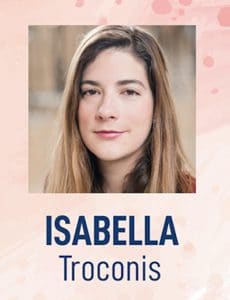
“It is exciting that my last years of professional experience in energy access have been recognized by an institution like FSR through the Lights on Women Scholarship. The opportunity to take a course to further learn about trends and regulations in the energy sector while connecting with like-minded peers will allow me to further grow professionally and personally”.
Isabella Troconis is an international development professional with experience in off-grid renewable energy, clean cooking, microfinance and social entrepreneurship in Latin America and Sub-Saharan Africa.
Her keen interest for off-grid energy solutions started in 2014 when she learned about Iluméxico, a social start-up that won the social entrepreneurship start-up competition she was coordinating as a program officer at Organisation of American States in Washington DC. In 2016, She switched to the energy sector by working at a local start-up in Uganda called Village Energy. In doing so, she coordinated a project that both enables energy access in off-grid areas through SHS while supporting young women in creating and running their own SHS-powered micro-businesses.
More recently, she completed her MSc in Environmental Policy and Regulation at LSE, where she had the opportunity to conduct research on clean cooking solutions with the UN Agency for Refugees in a refugee camp in Burkina Faso.
Since 2018, Isabella serves as a Development Advisor to the German Cooperation Agency (GIZ) in Rwanda. She has been managing the funds for the implementation of a Results-Based Finance Mechanism to support the development of the off-grid energy market in Rwanda and the Government of Rwanda’s goal of achieving 100% electrification rates by 2024.
By taking part in the Electric Vehicles: a power sector perspective course, Isabella hopes to understand challenges and opportunities posed by the ever-growing number of EVs in developing countries.
Isabella is a native Spanish speaker, fluent in English and French and learning German.
Connect with Isabella on Twitter and Linkedin!
Glory Oguegbu
“For years, I’ve been actively advocating for measures that will reduce greenhouse gasses; delving into this study of electric vehicle in the FSR online course is key to achieving this goal. I am grateful for the opportunity provided by Lights on Women to gain a deeper understanding of charging infrastructure and integrating EVs into the power system. For me, this is a call to strive harder to create the change I want to see – namely, helping 70% of Nigerians become climate aware and facilitating the journey of 10, 000 women to become clean energy entrepreneurs in the next 10 years.”
Glory Oguegbu is passionate about the economic development of Nigeria and works in the field of renewable energy and environmental sustainability to promote Nigeria’s economic growth through job creation and education. She is the founder of Climate Smart Nigeria which promotes Climate Change Education in Nigerian institutions and provide capacity building on renewable energy technologies. She established the Renewable Energy Technology Training Institute (RETTI) after coming across so many failed installations. The institute grooms the next generation of efficient installers and entrepreneurs with a focus on women who will serve as a competent workforce for the renewable energy industry and provide solutions to Nigeria’s prevalent energy problems as entrepreneurs. Glory has also published four books to promote the knowledge of climate change and renewable energy.
Glory’s passion for climate change caused her to have an increasing interest in electric vehicles. She hopes to continue leading action and advocacy to attain a climate-smart Nigeria. As a youth actively taking climate action, she had a dream to drive an electric car, a dream which was killed because there are no charging stations in Nigeria. Glory hopes that through studying the Course – Electric Vehicles, a Power Sector perspective, she can gain a deeper knowledge on charging infrastructure and how to integrate EVs into the power system and use her knowledge to actively lead change to encourage the passing of the electric vehicle bill into the Nigerian legislation. This action which will not only combat climate change, it will improve access to clean electricity and create green jobs.
She is the recipient of several local and international awards and recognitions which include; The Nigerian Star from the US Mission in Nigeria (2019), The Young Energy Professional of the Year by the Nigerian Energy Awards (2018), A Foremost Woman in Renewable Energy (2017); (f) Environmental Award of Excellence (2014).
Connect with Glory on Twitter and Linkedin!
Francesca Putzu
“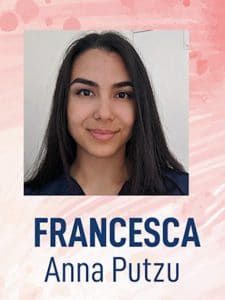 With the profound changes taking place in electricity markets, understanding their intricacies is key to supporting the transition to a sustainable energy system. I’m elated to have been awarded the Lights on Women Scholarship. Attending an FSR course will provide great support in my ambition to help decarbonise power systems, and I’m thrilled to become a part of the FSR community.”
With the profound changes taking place in electricity markets, understanding their intricacies is key to supporting the transition to a sustainable energy system. I’m elated to have been awarded the Lights on Women Scholarship. Attending an FSR course will provide great support in my ambition to help decarbonise power systems, and I’m thrilled to become a part of the FSR community.”
Francesca Putzu, having grown up in Norway, a country with vast energy resources, the value of energy in shaping society was never lost on her. However, it wasn’t until university that her enthusiasm for the industry was ignited, as she started pondering how to reconcile the growing demand for energy supply and the urgent need to reduce greenhouse gas emissions. After further studies and internships at Statkraft and the Renewable Energy Association, she had set her sights on a career in the electricity sector.
During her graduate studies, Francesca’s passion for the development of low-carbon electricity systems was strengthened through the degrees MSc International Energy from Sciences Po, Paris, and MA Science and Security from King’s College London. There she strengthened her domain expertise and analytical capabilities, which she applies in her current job as Commercial Analyst in Arenko Group, a software services company that specialises in the optimisation of grid-scale battery storage systems. Francesca is most intrigued by the essential role electricity storage plays in integrating renewable energy, and the innovative ways batteries can provide much-needed flexibility on the electricity grid while displacing polluting gas peaking plants.
Ambitious in her pursuit to help decarbonise power systems, Francesca is thrilled to be attending the Evolution of Electricity Markets in Europe online course. She looks forward to employing its teachings to facilitate bringing innovative solutions to market and help create a more sustainable energy system.
Francesca’s enthusiasm for the energy transition and professional development extends beyond her work. She is the Vice-Chair of Sponsorships of the Energy Institute’s Young Professionals Network in London.
Connect with Francesca on Twitter and Linkedin!
Learning with the Florence School of Regulation
Our training courses are designed and continuously updated to meet the educational needs of energy professionals at all levels. The courses are developed with the support of an outstanding international training faculty, which includes professors from top universities as well as high-level experts in energy regulation, policy-making, and industry. We offer different types of training courses: Online, Residential, Blended (online + residential) and Tailor-made courses at all levels of knowledge.
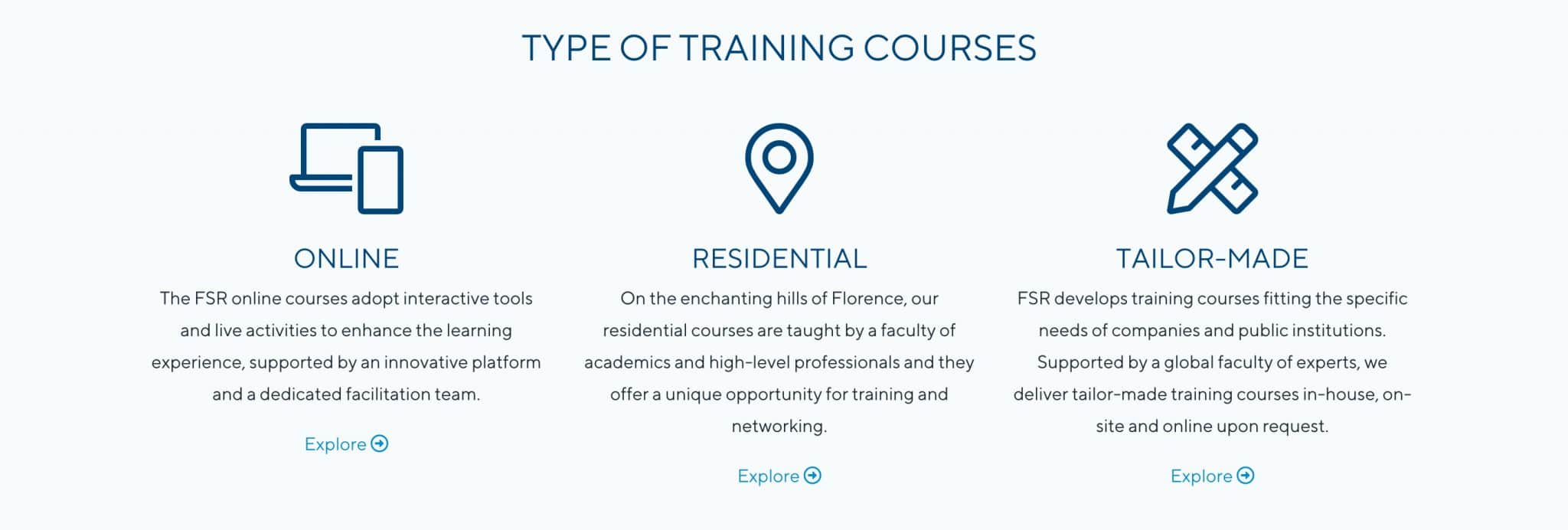
FSR Online Training
Our online courses adopt interactive tools and live activities to enhance the learning experience, supported by an innovative platform and a dedicated facilitation team.
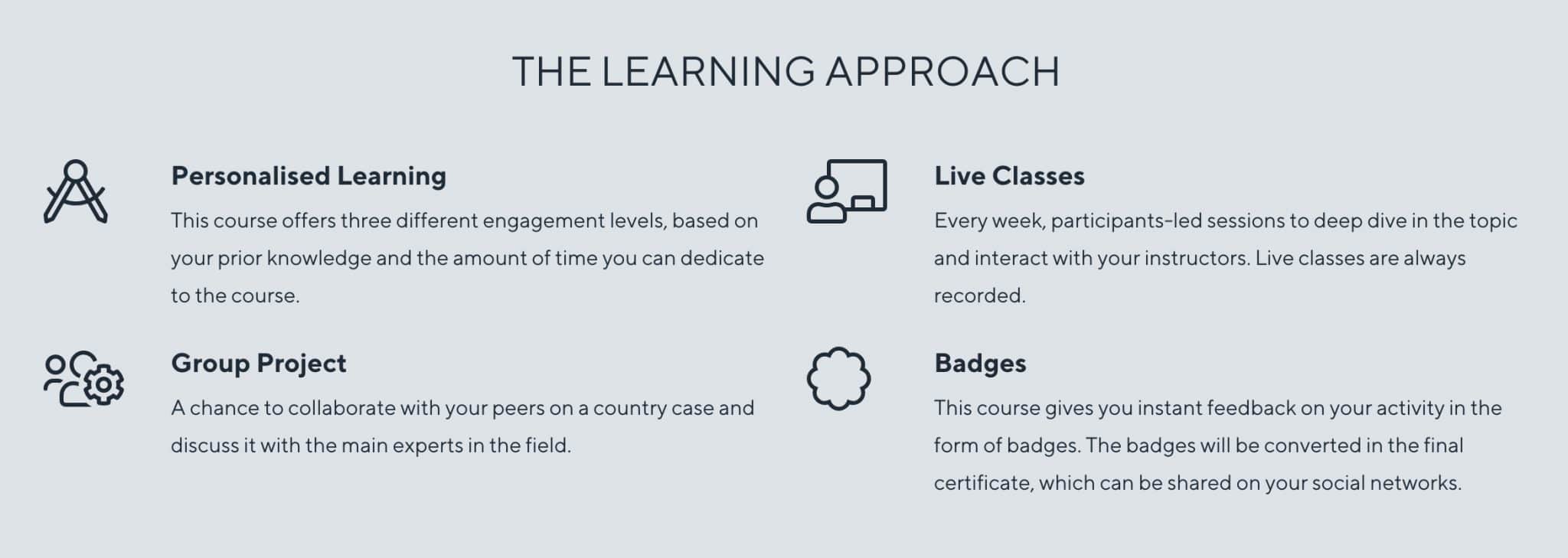
At the end of the course, you can earn a Certificate of Attendance, a Certificate of Completion or a Certificate of Excellence, depending on your performance and engagement throughout the course. You can take FSR online courses on 3 different levels of engagement, depending on your level of expertise or how much time you can dedicate to the course:
- Level One – Investigator: Learn to speak the language of the topic of your selected course! Take the quizzes, read the materials and join the live classes to earn a Certificate of Attendance.
- Level Two – Advocate: Learn to discuss and debate with colleagues and field specialists! Take the quizzes, read the material and join the live classes and participate in the forum discussions to earn a Certificate of Completion.
- Level Three – Master: Learn to discuss, debate, analyse and attempt to solve/improve a real-life case! Take the quizzes, read the material and join the live classes, participate in the forum discussions and deliver a Final Project to earn a Certificate of Excellence.
The amount of time required to take this course depends on the aimed course level as well as the level of expertise in the subject prior to joining the course.
Learn more about FSR Online Courses
Questions? Contact us!
Related contents
Stay in the know
Get the Lights on Women newsletter.
